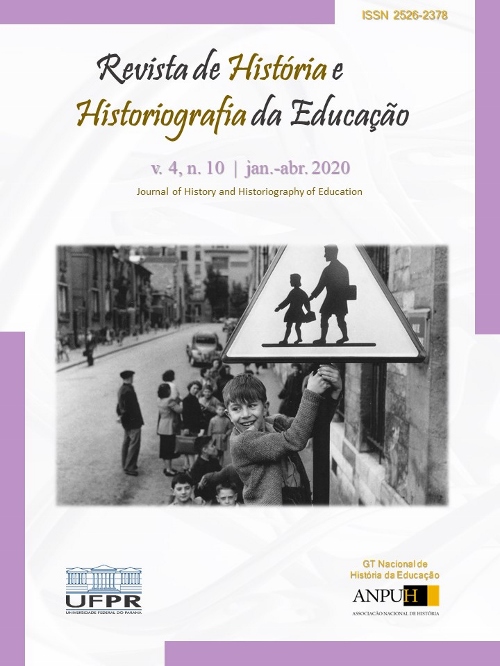História, narrativa e ensino: diálogos, limites e possibilidades de uma reflexão teórica / History, narrative and education: dialogues, limits and possibilities of a theoretical reflection
DOI:
https://doi.org/10.5380/rhhe.v4i10.72380Keywords:
História, Narrativa, Ensino, Representação / History, Narrative, Education, RepresentationAbstract
A narrativa foi — e é — objeto de reflexão na ciência história por diferentes autores e distintas abordagens. Este artigo acompanha o movimento de análise que tematiza a narrativa histórica, a fim de ampliar a reflexão acerca do “estatuto narrativo” da História acadêmica e didática e entender os limites e as possibilidades de sua pretensão em representar o passado. Com essa problematização, almeja-se colocar a narrativa como foco de análise no ensino de História como caminho passível para enfrentar as disputas de narrativas que perfilam o cotidiano da sala de aula. Para tanto, recorre-se a diferentes autores, em especial Paul Ricœur, para explicitar em que consiste a narrativa histórica e quais os procedimentos que atribuem legitimidade e reconhecimento a sua representação do passado. Pelo arcabouço teórico mobilizado, defende-se que os procedimentos constituidores da narrativa histórica podem ser acionados como uma estratégia viável para lidar com as disputas de narrativa em sala aula e promover o entendimento sobre a relação de confiança e credibilidade que esse relato escrito desfruta na tarefa de representar o passado.
***
The narrative was - and is - an object of reflection in history by different authors and different approaches. The article follows the movement of analysis that focuses on the historical narrative to broaden the reflection on the “narrative status” of History - academic and didactic – in order to understand the limits and possibilities of its claim to represent the past. With this problematization, the aim is to place the narrative as the focus of analysis in the teaching of History as a possible way to face the disputes of narratives that appear in the daily life of the classroom. To this end, it mobilizes different authors, especially Paul Ricoeur, to explain what the historical narrative consists of and which procedures give legitimacy and recognition to its representation of the past. Through the mobilized framework, it is argued that the procedures which constitute historical narrative can be used as a viable strategy to deal with classroom narrative disputes and to promote understanding of the relationship of trust and credibility that this written report rejoices in the task of representing the past.






